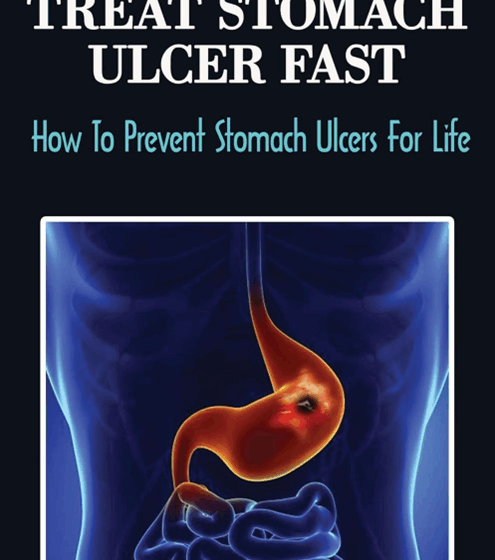
Ulcers are a common but often misunderstood health condition, that is generally associated with stress or spicy food, however its causes and treatments is beyond hearsay. If you’ve ever experienced a burning stomach pain that won’t go away, you might be dealing with an ulcer.
Let’s break down what ulcers are, what causes them, how to recognize the symptoms, and how to treat or prevent them.
What Is An Ulcer?
An ulcer is an open sore that develops on the lining of the stomach, small intestine, or sometimes the esophagus. The most common types are:

– Gastric ulcers – occur in the stomach lining
– Duodenal ulcers – occur in the upper part of the small intestine
– Esophageal ulcers – occur in the esophagus (less common)
Together, gastric and duodenal ulcers are often called peptic ulcers.
Causes Of Ulcers
Contrary to popular belief, ulcers are not caused by stress alone. The main causes include:
1. H. PYLORI INFECTION
– A common bacteria that damages the protective lining of the stomach.
2. FREQUENT USE OF NSAIDs
– Nonsteroidal anti-inflammatory drugs like ibuprofen, aspirin, or naproxen can erode the stomach lining over time.
3. EXCESS STOMACH ACID
– Sometimes due to genetics, diet, or certain conditions like Zollinger-Ellison syndrome.
4. SMOKING AND ALCOHOL
– Can irritate and weaken the stomach lining, increasing ulcer risk.
Common Symptoms Of Ulcers

| – Burning or gnawing pain in the upper abdomen. – Pain that improves or worsens after eating. – Bloating, burping, or feeling full quickly. – Nausea or vomiting – Unexplained weight loss – In severe cases: vomiting blood or dark stools |
Note: Some people with ulcers have no symptoms until complications develop.
Diagnosing An Ulcer
If you suspect an ulcer, a doctor may recommend:
– Blood or breath test (for H. pylori)
– Endoscopy – a thin camera inserted through the throat to view the stomach lining
– Stool test or X-ray
Treatment Options
– Antibiotics – to kill H. pylori bacteria
– Proton pump inhibitors (PPIs) – reduce stomach acid (e.g., omeprazole, lansoprazole)
– H2 blockers – another type of acid reducer
– Antacids – for short-term relief
– Lifestyle changes – diet, quitting smoking, reducing alcohol
Most ulcers heal within 4 to 8 weeks with proper treatment.
ULCER CARE: DO’S And DON’TS

Do:
– Eat small, frequent meals
– Drink plenty of water
– Follow prescribed medications
– Reduce stress where possible
– Get tested for H. pylori if symptoms persist
Don’t:
– Skip meals or eat late at night
– Overuse painkillers
– Consume excessive caffeine, alcohol, or spicy foods
– Smoke
When To See A Doctor
Seek urgent medical care if you:
– Vomit blood
– Have black, tar-like stools
– Experience severe, sudden stomach pain
These may indicate a bleeding or perforated ulcer, which is a medical emergency.
Ulcers are treatable and manageable once properly diagnosed. Knowing the symptoms, avoiding triggers, and sticking to treatment can help prevent complications and support long-term healing.
Listen to your gut, and take care of it.
By-Adenola Eniola.


